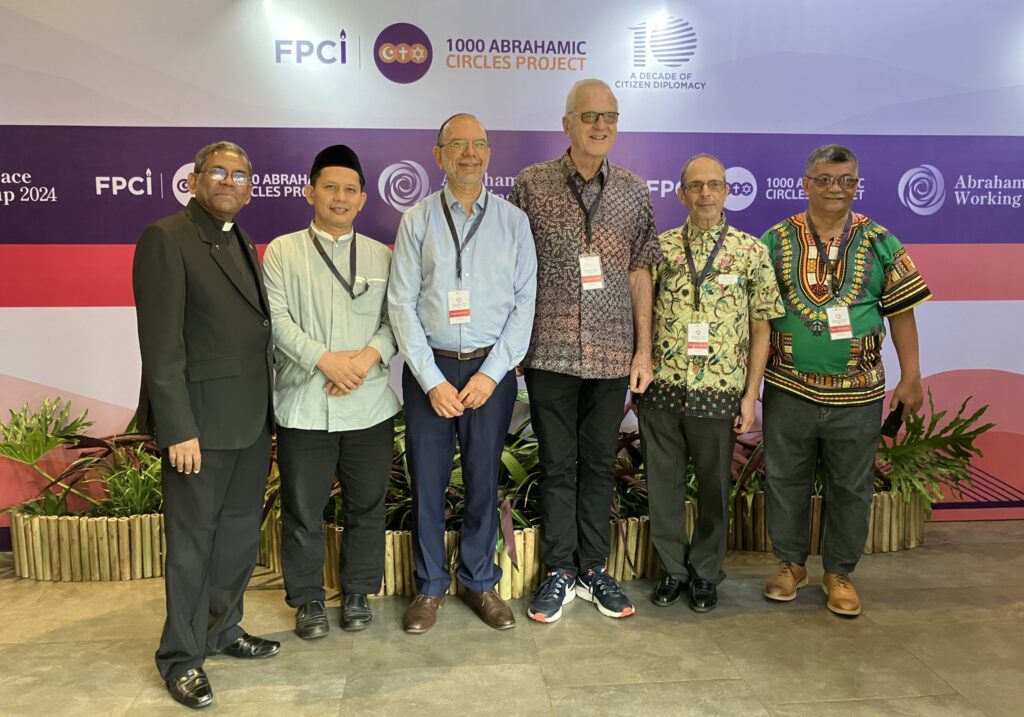Australia/Israel Review
The Last Word: Abrahamic angst and aspirations
Nov 20, 2024 | Rabbi Ralph Genende

I’ve been involved in interfaith work for most of my rabbinical life. I have seen the best and the worst of it; the profound bridging of different lives and perspectives, but also the shallow political posturing and the bonhomie of superficial unity – “We’re all basically the same and if we sing from the same song sheet long enough everything will be fine.”
For some, interfaith is a waste of time – after all, you can’t really trust the other and our belief systems are incompatible and incommensurable. For these people, since October 7, their attitude has only hardened. How can you trust a Muslim when they rape and brutalise in the name of Allah? The rabbis of the Talmud, they contend, got it right when they argued, “It’s a law of Moses from Sinai that Esau (the non-Jew; typically the Church) hates Jacob the Jew.” And, by extension, Ishmael hates Isaac.
Interfaith relations have been in crisis since October 7 and Jewish-Muslim interactions have stalled, if not broken down. In Australia, antisemitism, often fuelled by primarily-Muslim pro-Palestinian protests, has gone through the roof.
So, when I told people I was going to Indonesia for an interfaith conference, they were concerned, confused or simply sceptical. Going to a Muslim country ostensibly hostile to Israel, engaging in interfaith dialogue with Muslims and Christians during this time of war and polarisation, speaking to imams? Was this sheer folly? How can you relate, even to a moderate Muslim, after their thundering silence in those days immediately after October 7? Was it even safe to arrive in Jakarta sporting a kippah?
When I heard about the Abrahamic Peace Working Group Conference, I weighed up these concerns. But, continuing in the tradition of AIJAC leaders like Jeremy Jones in Indonesia for more than 30 years, I was inspired by the belief that if a Muslim organisation was willing to invite Jews and Muslims to come together (and also interact with Christians) at a time like this, it was a rare opportunity. It supported my belief, based on the profound reflections of Rabbis Jonathan Sacks and Menachem Froman (a pioneer of interfaith endeavours in Israel), that if religion is part of the problem, it can also be part of the solution.
The Abrahamic Peace or Circles initiative is the brainchild of Dr Dino Patti Djalal, former Indonesian Ambassador to Washington. He similarly believes that addressing the problems of the world means recognising the role religion plays in it. The October 7 War, says Dino, will have emotional and psychological consequences. Left unchecked, it can also allow religious extremism to flourish. While he is mindful that meetings like this will not change the world overnight, he is convinced that small and incremental changes can temper the dangers of extremism.
The conference involved Jewish, Christian and Muslim religious leaders and scholars. The purpose of the conference was not only reflective; it was also a bold call to action. It sought to urgently explore how these three great faiths could join together, work side by side and come up with practical suggestions to help heal the wounds, mend the ruptures and prevent further deterioration.
And that’s what we did for two intense days in the cool mountain air of West Java in the beautiful city of Bandung. We spoke together, we worked together, we argued, we engaged in courageous conversations.
Drafting an action plan was the most challenging part of the conference. Referencing the war was a flashpoint of vigorous and impassioned debate. The Action Plan is a bold, hopeful and practical response offering concrete proposals to address Abrahamic angst, using educational, governmental and social media platforms alongside grassroots and youth-oriented programs.
The conference coincided with the weekly Torah reading of Lech Lecha (Genesis 12), which concerns the journey and mission of Abraham: to be a blessing to humanity. This is an important reminder to us Jews not to despair of our role to try to repair the world, and to play our part in the story of humanity.
Tags: Antisemitism, Indonesia, Interfaith Dialogue






